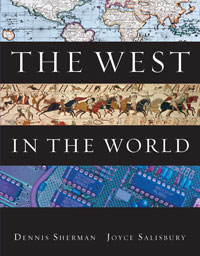1 A) Aeneas. B) a wolf. C) Mars. D) Zeus. 2 A) large-scale agriculture. B) military training. C) trade. D) defense. 3 A) incited her fellow Romans to rebel. B) bore the child of Tarquin the Proud. C) committed suicide after being raped. D) killed her rapist, setting off a war between the Romans and the Etruscans. 4 A) granting the wealthy plebeians some participation in government. B) granting the wealthy patricians some participation in government. C) allowing the patricians to continue to accumulate wealth. D) establishing a political alternative to patrician government. 5 A) refuse military service B) hold sacred and political offices C) make laws that applied to everyone without Senate approval D) establish their own temple 6 A) freed slaves. B) poets in need of money. C) aristocratic youths. D) small and tenant farmers. 7 A) their constant need for new slaves. B) continual land hunger. C) grain shortages. D) the aggressions of their neighbors. 8 A) the authority they exerted over their sons. B) their choice of spouses. C) the exposure of female infants. D) gaining their husbands' affections. 9 A) through a metropolitan collection service. B) by dumping it outside city walls. C) by forcing slaves to haul it to a field where it was buried. D) in the sewers. 10 A) Roman citizens rushed to a public meeting. B) slaves were sent to protect the walls of the city. C) free householders had to report to the capitol within thirty days. D) women retreated into the households, while men formed troops. 11 A) Roman soldiers vowed to fight to the death or until the war ended. B) Roman soldiers only ate meat while at war. C) There was no shame in returning home after a defeat. D) Romans fought in a wild and informally organized style. 12 A) the city of Saguntum. B) trade with Africa. C) northern Italy. D) the Sicilian city of Messana. 13 A) Philip V of Macedonia came to Carthage's aid. B) Macedonia assisted Roman naval efforts. C) Scipio sailed to North Africa, forcing Hannibal home. D) Hannibal defeated Scipio at the Battle of Zama in 202 B.C.E. 14 A) the Roman Senate B) the Forum C) Cato the Elder D) private individuals 15 A) were given only the most undesirable jobs. B) often worked in the same occupations as citizens. C) were not allowed to earn money. D) were not allowed to work in higher-status jobs. 16 A) cultivated more lucrative crops like olives and wine grapes. B) increased grain production. C) employed the newly property-less people. D) left many fields unplowed. 17 A) arches B) concrete covered in stucco C) Archimedes' ideas D) Etruscan techniques of drainage 18 A) comedies about all types of Romans B) grain subsidies C) enhancement of aristocratic privilege D) accounts of military campaigns 19 A) the Senate B) landless Romans C) the equestrian order D) provincial governors 20 A) promised them land for their service. B) promised them government positions upon their return to Rome. C) made land a requirement for being a soldier. D) eliminated the patron-client relations between general and soldier. 21 A) accepting the title of dictator. B) establishing a public works program to create jobs. C) defeating Pompey in Egypt. D) placing his image on coins. 22 A) believed that the responsibility of governing rested outside of the people. B) was dominated by an aristocratic class. C) did not have elected officials. D) was the same as the Athenian polis. 23 A) prohibition of girls from formal education B) exposure of infants C) low infant mortality D) the absence of advanced learning 24 A) wrote plays based on traditional Greek models. B) received universal praise from his contemporaries. C) was born into a powerful aristocratic family in Rome. D) refused to write comedies.





